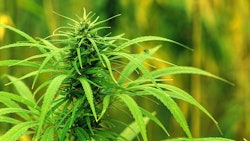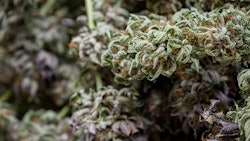The U.S. government’s often hypocritical position on marijuana and hemp has bewildered many. (After all, the government holds a patent on cannabis-derived cannabinoids as a neuroprotectant, yet it maintains cannabis has no medical uses.) However, the 2018 Farm Bill’s recent passage legalized, at the federal level, hemp cultivation beyond research purposes, and the country turned its attention to the crop’s tremendous possibilities and potential environmental and economic impact.
For marijuana cultivators planning to cultivate, or already cultivating, hemp-derived CBD, however, many unanswered questions and potential hurdles impede the path forward.
The Farm Bill “removed hemp from the U.S. Controlled Substances Act (CSA). The move delineated ‘industrial hemp,’ which can contain no more than 0.3-percent THC, into a distinct category from its psychoactive counterpart, known legally as marijuana,” explain Cannabis Business Times Editors Eric Sandy and Melissa Schiller in this month's issue. However, the U.S. Food and Drug Administration (FDA) has stated that hemp-derived CBD products are illegal. And according to the Associated Press, the FDA has already issued warning letters “to some companies making health claims for CBD.”
Why? We can look directly to the FDA’s September approval of GW Pharmaceuticals’ marijuana-derived CBD-based drug Epidiolex. On Sept. 27, the DEA rescheduled FDA-approved drugs that contain CBD and no more than 0.01-percent THC. As Sandy and Schiller report: “In the FDA’s view, CBD is an active ingredient in a pharmaceutical drug (Epidiolex) and, like other active drug ingredients, cannot be sold separately.”
The FDA’s stance suggests that all CBD-based products will be subject to FDA approval or will be deemed illegal to sell. California followed the FDA’s stance, stating on July 6, 2018, “that CBD derived from industrial hemp is banned in all edibles, supplements and pet food.”
The implications of the FDA’s stance are vast.
First, GW released a statement in summer 2018 that a one-year supply of Epidiolex will cost $32,500—significantly higher than the cost of over-the-counter CBD products currently available. If only FDA-approved CBD-products can be legally sold, this will seriously limit the public’s access to affordable CBD products.
On the flip side of that is the cost to companies desiring to sell CBD-based products. The most recent projection from the Tufts Center for the Study of Drug Development dates back to 2014 and suggests the cost of preparing a drug for submission for FDA approval is $2.6 billion. (And, of course, approval is not guaranteed.) This cost will prevent many, if not the majority of small CBD businesses from surviving in the national CBD market.
And, as Tomorrow in Cannabis columnist Kenneth Morrow noted in CBT’s October issue, “Many have already invested millions of dollars building companies that intended to produce [human and pet products from that extracted CBD].”
With the FDA’s mission to protect “the public health by ensuring the safety, efficacy, and security of human and veterinary drugs, biological products, and medical devices; and by ensuring the safety of our nation’s food supply, cosmetics,” the organization undoubtedly provides immense benefit to society. And with CBD products flooding the market—many claiming significant human and pet health benefits—consumers are confused about how to evaluate the safety and efficacy of these products, and oversight is needed.
So we can certainly celebrate the tremendous victories of the Farm Bill’s passage, but not without serious reservations about how significantly the potential for CBD-based medications or products will be affected.
























